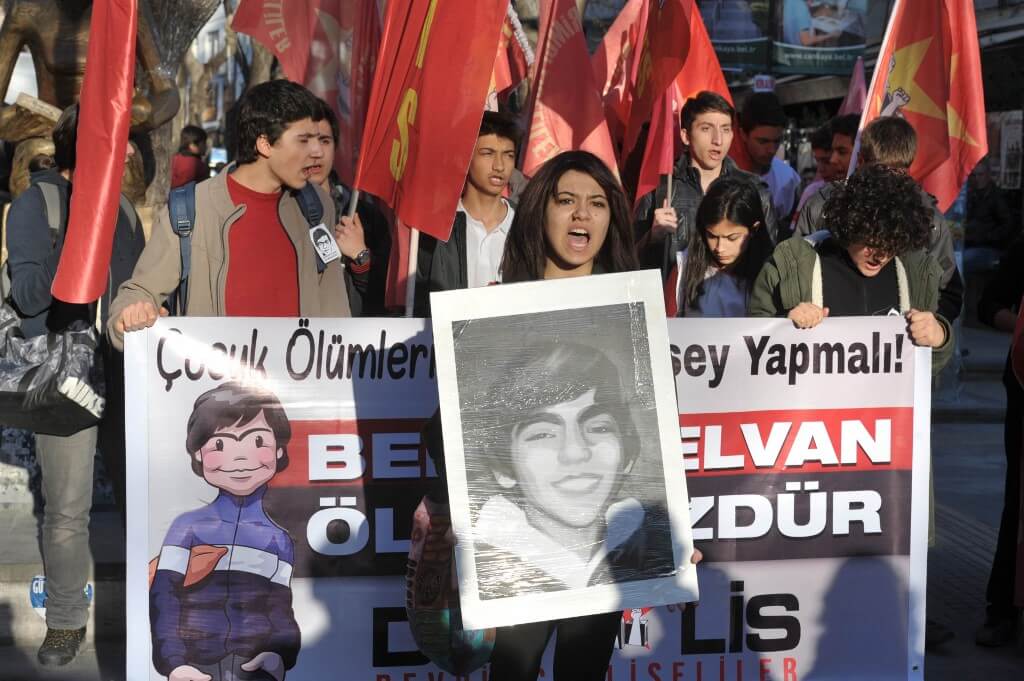The European Court of Human Rights (ECtHR) has found a rights violation in the death of teenager Berkin Elvan after being hit by a tear gas canister fired by the Turkish police during the anti-government Gezi Park protests of 2013.
The court ruled that Turkey violated the right to life of Elvan, who was struck in the head with a tear gas canister fired by a police officer during the protests in İstanbul and subsequently died of his injuries. The rights court said the Turkish authorities failed to conduct an effective investigation into government officials’ possible roles in the death of the teenager.
Elvan, who became one of the symbols of the Gezi Park protests, died on March 11, 2014 after remaining in a coma for 269 days. He was 14 when he was injured and 15 when he passed away.
The court on Tuesday released its judgment for an application filed by four of Elvan’s family members on Nov. 29, 2019 in which they complained about Elvan’s death and the investigation into the circumstances of his death, relying in particular on Article 2 of the European Convention on Human Rights (right to life).
The court explained that it would attach no weight to the ruling Justice and Development Party’s (AKP) argument that the general situation during the Gezi events had been “dangerous” or to the idea that Elvan had participated in any particular activity in that context.
“The law-enforcement director H.Ç. and the governor H.A.M. had certainly been the first to know how the police had intervened in the Gezi events and the authorities to which they were accountable were the only ones to have access to information capable of corroborating or refuting the applicants’ allegations,” the court said.
According to the ECtHR, there had been a “breach” of the Turkish state’s procedural obligation under Article 2 of the convention to carry out an “effective investigation” into any part that İstanbul’s law-enforcement director H.Ç. and/or governor H.A.M. might have played in relation to the death of Elvan.
The court further said that it didn’t grant any award since the applicants had not made any claim for just satisfaction.
The protests in 2013 erupted over government plans to demolish Gezi Park in the Taksim neighborhood of İstanbul. They quickly turned into mass anti-government demonstrations that were violently suppressed by the government, leading to the death of 11 protestors due to the use of disproportionate force by the police.
Berkin’s mother, Gülsüm Elvan, who held then-prime minister Recep Tayyip Erdoğan responsible for Berkin’s death because he ordered the police to use excessive force to suppress the protests, was attacked by Erdoğan at a public rally in 2014. Erdoğa branded Berkin a terrorist and let the crowd boo the woman.
A high criminal court in İstanbul in June 2021 sentenced Fatih Dalgalı, a police officer and the only suspect in Elvan’s death, to life in prison on charges of “premeditated murder,” but the sentence was reduced to 16 years, eight months because the murder was committed on “eventual intent.”
The court did not arrest Dalgalı but placed him under judicial supervision and imposed a travel ban. Dalgalı will start serving his time if the Supreme Court of Appeals upholds his sentence.

